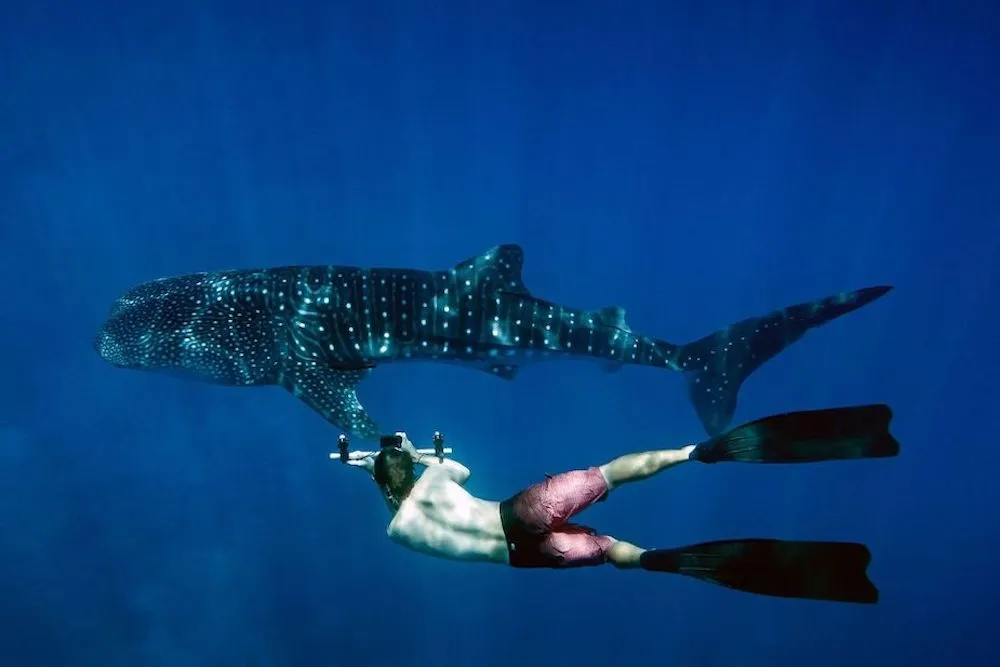The Government of Maldives has made a notable advancement in marine conservation by issuing Regulation No. 2024/R-96, focused on improving whale shark interactions. This regulation, which is the seventh amendment to the Protected Species Regulation (2021/R-25), updates the existing Code of Conduct for the Protection and Conservation of Whale Sharks, initially introduced in 2009.
This new policy reinforces the Maldives’ dedication to marine life preservation by implementing strict guidelines that prioritize the safety of both tourists and whale sharks. Notable provisions include maintaining a minimum distance of three meters from the body and four meters from the tail of the whale sharks. It strictly prohibits any physical contact or holding onto the whale sharks while swimming alongside them. Interactions should be conducted calmly and quietly, avoiding any actions that could chase or block the whale sharks’ natural movements by staying to their sides.
Additionally, the regulation bans the feeding of whale sharks and restricts the use of flash photography, selfie sticks, or bright lights during encounters. Aerial photography guidelines require drones to be flown at least 30 meters above sea level and within the operator’s line of sight. A 250-meter contact zone around whale sharks allows no more than three vessels at a time, with a speed limit of five knots per hour, reducing to two knots within 50 meters of the whale shark. Emergency protocols are also outlined to ensure whale sharks remain undisturbed in their natural behaviors.
In case of encountering an injured or entangled whale shark, the regulation includes clear instructions, such as notifying the Environment Protection Agency and ensuring the whale shark’s safe release.
This regulation aims to enhance the experience for tourists engaging with whale sharks while also protecting the vital marine ecosystem that sustains these creatures. The Maldives continues to set a global example in marine conservation, ensuring that future generations can admire the beauty of these gentle giants.



